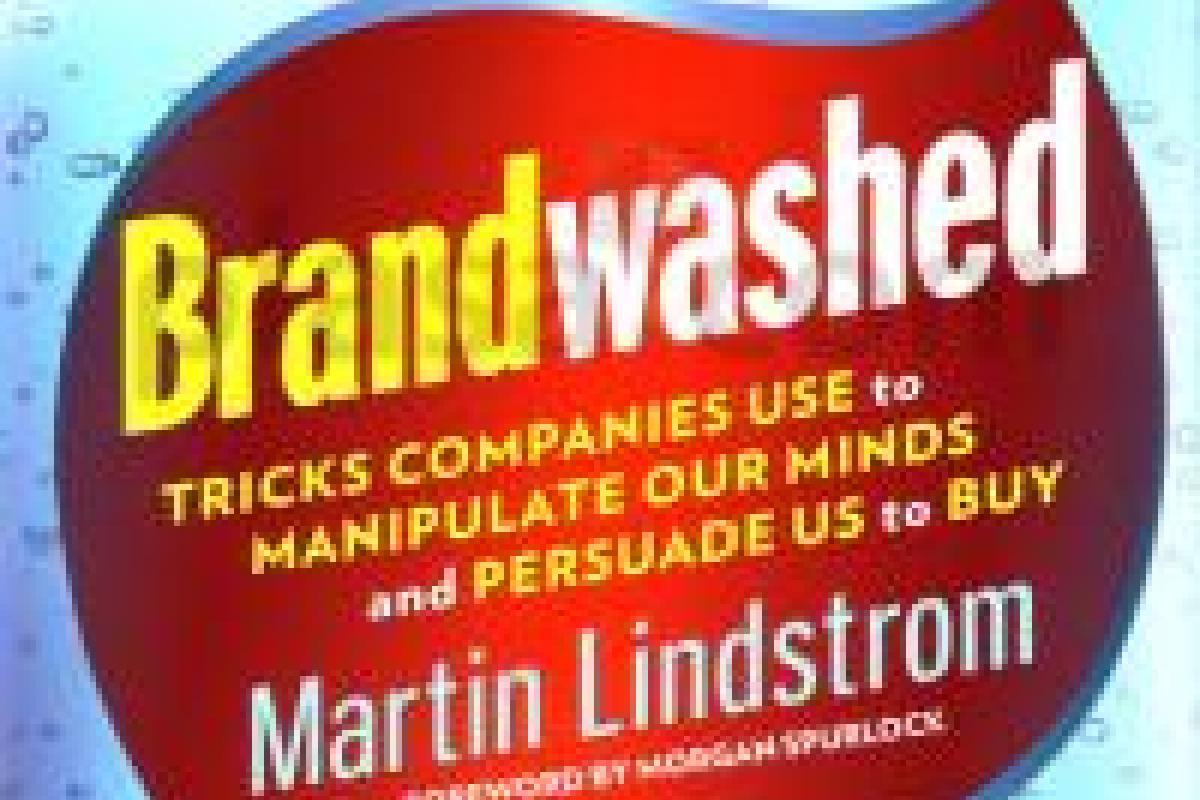‘Tricks companies use to manipulate our minds and persuade us to buy’ is Brandwashed’s sub-title; the book purports to lift the lid on the myriad of dodgy marketing practices that con and cajole consumers into buying stuff they don’t want.
Brandwashed is aimed at consumers rather than professional marketers – and I’d advise professional marketers to give it a miss. Firstly Martin Lindstrom is poacher turned gamekeeper (though I think he’s also still a poacher).
As a marketing consultant he advises some of the world’s top marketing firms – from McDonalds to Microsoft. But he uses that insight and experience to ‘open our eyes to all the ways in which we, as consumers, are being manipulated and deceived’. I think that advising a client to do something (for reward) and then writing a sensationalised book to ‘lift the lid’ is not particularly fair.
And the sensationalism irks me. Of course I agree that consumers shouldn’t be ‘manipulated and deceived’ but many of the examples Lindstrom gives are simple cases of marketing activities that appeal to people’s emotional needs and wants. So Proctor and Gamble ensure men’s and women’s cosmetics are shelved in different aisles in stores so the male shopper won’t feel uncomfortable. Manipulation or common sense? Is it shocking that nostalgia sells or that word of mouth is the most persuasive mode of marketing communication? Surely not.
Consumers are well aware of these marketing techniques – and they buy because those products and services willingly fulfil emotional as well as functional needs. The book positions the full range of accepted (and acceptable) marketing and communications techniques as unacceptable. As a result the real transgressions get lost in the overall narrative. Most would agree that Tesco’s marketing of a Peekaboo Pole Dancing Kit to girls under 10 years old is ‘wildly age-inappropriate’. And the chapter on how social media brands are tracking our behaviour is unsettling.
Perhaps my biggest disappointment is that the argument is unbalanced. There is no case for the defence on behalf of commerce. Lindstrom is perfectly placed to provide that balanced argument yet eschews the opportunity.
Ann Binnie reads Brandwashed and wonders who it’s aimed at.
This is written by the best-selling author of “Buy-ology”. You can tell it’s written by an ad man by the catchy titles and attempted sensationalism with which he tries to imbue his subject – not always successfully I’m afraid.
In reading this book I kept wondering – who’s this book for? Ordinary folk who will be shocked and surprised by the wicked companies employing the “tricks” that are “revealed” as manipulating you to buy?
Any discomfort I felt while reading was reserved for the apparent disdain with which the author holds the intelligence of the average consumer. Isn’t it monstrously patronising to us all to suggest a) we don’t know and b) we are being led to the slaughter ?
Many of his examples are of companies identifying what matters to people and then supplying them with products that meet their needs. What I question is who’s in the wrong here? It seems to be a tirade against the capitalist system that requires us to keep buying more “stuff” from each other or the economic wheels will grind to a halt.
And it’s very light on research evidence. Where’s the groundbreaking new research? Oh, the Morgenstroms – hm, nice documentary material, but research? Where’s the research, for example, that supports the finding that “a whole new generation” of Asian consumers were drawn to a shopping mall because they had been manipulated in utero by marketing people – scatterings of percentages (60%) of these mothers didn’t have the same experience elsewhere – do not convince me.
Since reading this book I’ve read commentary by the same author claiming to be trying to set us up for an argument for greater ethics in business/branding by this book. Well I think if that’s the case he might have made a better job of it – his difficulty being that he can’t express too much shock as he’s deeply implicated himself.
Brandwashed by Martin Lindstrom
Join The Marketing Society Book Club. If you are a member of The Marketing Society you could write a 300-word review for the Marketing Society’s blog. Contact Will Armstrong to get involved. Find out more about the benefits of joining The Marketing Society’s exclusive network.
